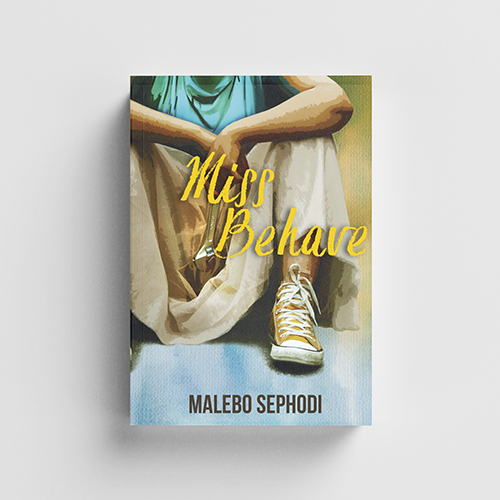Miss Behave Extract

“If you were to tell me 10 years ago that the words in this book would be mine, I would have laughed. Looking back at my life, I see a substantial evolution of consciousness in how my beliefs were shaped. This is something that many people grapple with. In light of this, the continuous questions I had in my mind while writing this book were: How do I continue writing when my views today do not resemble the ideology I had 10 years ago? Would my reader not think I was inconsistent? But another voice added: If you did not change because of suffering from marginalisation, it would be scary. In fact, that is why you are meant to write. Write about the changes – this is part of telling your story. And so, I tell my story, as truthfully as I can.
My relationship with myself – existing in my body – has been a complex one. Physically, spiritually, economically and politically, I have had to grapple with reconciling my existence on this earth. In tracking these complexities, I have noticed that Black women have been prominent in assisting and crafting who I am and how I analyse my environment. My mother sticks out as one of those women who influenced my thinking in ways that scare even her. From my earliest memory, I remember studying her in a way that I could easily formulate into theory. My childhood memory does not serve me well, but it has granted me a vivid memory of an experience with my mother in 1992.
From 1948, South Africa had been embroiled in an evil regime called apartheid, which marginalised and segregated people according to their race. In March 1992, a referendum to end apartheid was held, brewing mixed reactions from those who benefitted from it, but this signalled freedom for my parents and those who had suffered under the regime. Our country was experiencing a transition. A kind of uncertainty came over South Africans who had wrestled with the chains of oppression. The possibility of a new dawn filled the air.
Even with these moments, it was not unusual to experience adults trickling into our house in Ennerdale, a town situated south of Johannesburg, filling the air with laughter while melodies painted hearts with joy. A sudden groove developed in my parents’ hips, always finding a moment to celebrate.
One ordinary Saturday in 1992, the sun had completed its shift and you could hear the crickets tuning the air with their whistles, a mild breeze joining in on the jingle. My soul hovered above our lounge while the tunes slowly seduced my tiny eight-year-old ears, tickling what was then my unknown relationship with music. I watched my mother with glee, her curled pitch-black hair twinkling under the lights and complementing her black chiffon dress. Her face and teeth sparkled, reflecting mysterious stories. She threw her head back and like a flower in the wind swirled to the tunes of Brenda Fassie’s I’m Your Weekend Special.”



